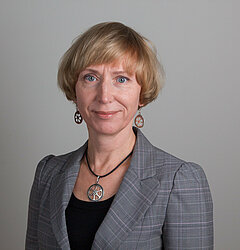Social Work - Professional Bachelor's Degree Programme
Programme level: Professional Bachelor's Programme
Language of instruction: Latvian
Study form and duration: full-time - 8 semesters, part-time - 9 semesters
Credits: 240 ECTS
Obtainable degree or qualification: Professional Bachelor Degree in Social Work
Number of students accepted each year:
full-time: state-funded 22; places for tuition fee 40
part-time (Rīga): places for tuition fee 30
part-time (branches): places for tuition fee 30
Tuition fee per year (ac. year 2025/26): full-time 2500 EUR for EU/EEA/Swiss citizens, permanent residence permit holders and their family members. 3500 EUR for citizens of other countries. Part-time 2200 EUR for EU/EEA/Swiss citizens, permanent residence permit holders and their family members. Branches 1600 EUR.
Study location: Riga, branches
The creation and accumulation of material wealth no longer attest to the social well-being of society. The precondition for prosperity is everyone's ability to acquire quality education, health care, security, to benefit from personal freedom and employment opportunities. At times when one of these conditions cannot be met, a social worker is involved to help people identify, alleviate and solve these problems and build a better life in the future.
The professional bachelor's study programme “Social Work” is amongst the few that, in addition to academic education, provides the necessary knowledge, skills and value base for professional qualification. The aim of the programme is to train specialists with the second level professional higher education, professional bachelor's degree in social work and the fifth level professional qualification "Social Worker".
Study programme is implemented at:
Riga (full-time regular studies and part-time regular studies)
UL branches in Alūksne, Cēsis, Kuldīga, Bauska, Jēkabpils, Madona and Tukums (part-time regular studies)

The video cannot be viewed because you have not selected functional cookies.
To view the video, please enable functional cookies in your cookie settings.
Acting Director of the Study Programme

Associate professor Baiba Bela
1. gads. Tu apgūsi tālākajām sociālā darba studijām nepieciešamās pamatzināšanas un studiju prasmes. Tāpēc šajā gadā iekļauts ievadkurss sociālā darba studijās, kā arī iepazīšanās ar saistītajām nozarēm (komunikāciju pamati, psiholoģija, ekonomika un filozofijas pamati). Šajā gadā veiksi praksi kādā sociālās labklājības institūcijā.
2. gads. Tu apgūsi darbam nozarē nepieciešamās vispārējās un specifiskās zināšanas un prasmes. Pilnveidosi svešvalodu un digitālās prasmes, izpratni par sociālās drošības sistēmu, apgūsi sociālo darbu ar indivīdu un ģimeni, sociālo darbu ar dažādām grupām, piemēram, vardarbībā cietušajiem. Praksē mācīsies strādāt ar sociālām problēmām.
3. gads. Tu apgūsi zināšanas un prasmes, kas ļauj padziļināti apgūt nozares profesionālās kompetences. Piemēram, attīstības psiholoģiju, psihiatrijas pamatus, brīvprātīgo darba vadīšanu, ģimenes sistēmu, sociālo darbu kopienā, sociālo darbu ar vielu atkarīgām personām, supervīziju.
4. gads. Tev būs iespēja apgūt tos priekšmetus, kas saistīti ar nobeiguma pārbaudījumiem un diplomdarba izstrādi: sociālā darba projektu vadību, pētījumu veikšanu sociālajā darbā. Praksē attīstīsi savas sociālā darbinieka prasmes, iegūsi datus diplomdarba izstrādei.
KĀ STUDIJAS TIEK SASAISTĪTAS AR PRAKSI?
Studiju rezultātā iegūsi sociālā darbinieka profesionālo kvalifikāciju. Tāpēc kopumā 26 studiju nedēļas pavadīsi augsti kvalificētu profesionāļu vadītā praksē sociālajos dienestos, sociālās aprūpes institūcijās, krīzes centros un citās organizācijās, kuras organizē un sniedz sociālos pakalpojumus.
Pēc studiju beigšanas ir iespēja strādāt par sociālo darbinieku valsts, pašvaldību, nevalstiskā sektora un privātās organizācijās. Iegūtā profesionālā kvalifikācija un bakalaura grāds ļauj strādāt sociālās labklājības jomā arī citās valstīs.
Konkursa kritēriji personām, kuras ieguvušas vidējo izglītību sākot no 2004. gada:
CE latviešu valodā*
CE angļu valodā vai CE franču valodā, vai CE vācu valodā*
CE matemātikā*
CE kopvērtējumu vidējais vērtējums procentos, kuru aprēķina no personas nokārtotajiem CE visos mācību priekšmetos*
CE sociālajās zinātnēs* (nav obligāts, bet dod papildu punktus)
*LU netiek noteikta prasība pēc noteikta līmeņa CE uzņemšanai, bet ir jāņem vērā, ka CE rezultātu savstarpējas salīdzināmības nodrošināšanai piemēro šādus koeficientus:
- optimālā mācību satura apguves līmeņa eksāmeniem tiek piemērots koeficients 0,75, pielīdzinot augstākā mācību satura apguves līmeņa eksāmeniem;
- vispārīgā mācību satura apguves līmeņa eksāmeniem tiek piemērots koeficients 0,50, pielīdzinot augstākā mācību satura apguves līmeņa eksāmeniem;
- centralizēto eksāmenu rezultāti, kas iegūti līdz 2022. gadam, tiek pielīdzināti optimālā mācību satura apguves līmeņa eksāmeniem un tiem tiek piemērots koeficients 0,75, pielīdzinot augstākā mācību satura apguves līmeņa eksāmeniem.
Personām, kuras ieguvušas vidējo izglītību līdz 2008. gadam, centralizētais eksāmens matemātikā var tikt aizstāts ar vidējās izglītības dokumenta gada atzīmi matemātikā (vai vidējo atzīmi algebrā un ģeometrijā)
Konkursa kritēriji personām, kuras ieguvušas vidējo izglītību līdz 2004. gadam (neieskaitot), kā arī personām, kuras ieguvušas vidējo izglītību ārvalstīs un personām, kuras ir atbrīvotas no CE kārtošanas:
Gada vidējā atzīme latviešu valodā un literatūrā
Gada atzīme angļu valodā vai franču valodā, vai vācu valodā
Gada atzīme matemātikā (vai vidējā atzīme algebrā un ģeometrijā)
Gada vidējā atzīme obligātajos mācību priekšmetos
Gada atzīme sociālajās zinībās un vēsturē, vai gada atzīme vēsturē un sociālajās zinātnēs, vai gada atzīme sociālajās zinātnēs vai gada atzīme politikā un tiesībās (nav obligāta, bet dod papildu punktus)
Kā LU tiek aprēķināts konkursa vērtējums jeb iegūtie punkti.
Papildu punkti: LU Jauno sociālo darbinieku skolas 1. – 3. vietas ieguvēji 2024. un 2025. gadā saņem papildu punktus: 1. vietas ieguvēji saņem 100 punktus, 2. vietas ieguvēji – 75 punktus, 3. vietas ieguvēji – 50 punktus.
Priekšrocības: pilsoņiem, kas brīvprātīgi pieteikušies valsts aizsardzības dienestā un pabeiguši to un kuri atbilst studiju programmas uzņemšanas noteikumiem, bez konkursa tiek nodrošinātas no valsts budžeta finansētas studiju vietas, piesakoties ne vēlāk kā divu gadu laikā pēc dienesta termiņa beigām un atvaļināšanas rezervē.
During a single cycle of studies, students have the opportunity to spend up to 12 months abroad for studies or internships. Currently, the Faculty of Economics and Social Sciences has over 320 Erasmus+ cooperation agreements with universities across Europe and beyond. Students can participate in exchange studies in countries such as Austria, Germany, Spain, Italy, Finland, Sweden, Turkey, Portugal, Slovakia, Malta, and many others.
In addition, students may take part in exchange programmes based on bilateral agreements, which allow for study opportunities in 53 countries worldwide — including Japan, South Korea, Taiwan, and more.
Short-term mobility options are also available through the FORTHEM Alliance, offering students the chance to gain new knowledge and skills in Germany, Poland, Norway, Romania, Italy, France, Finland, and Spain.

 CONFERENCE
CONFERENCE